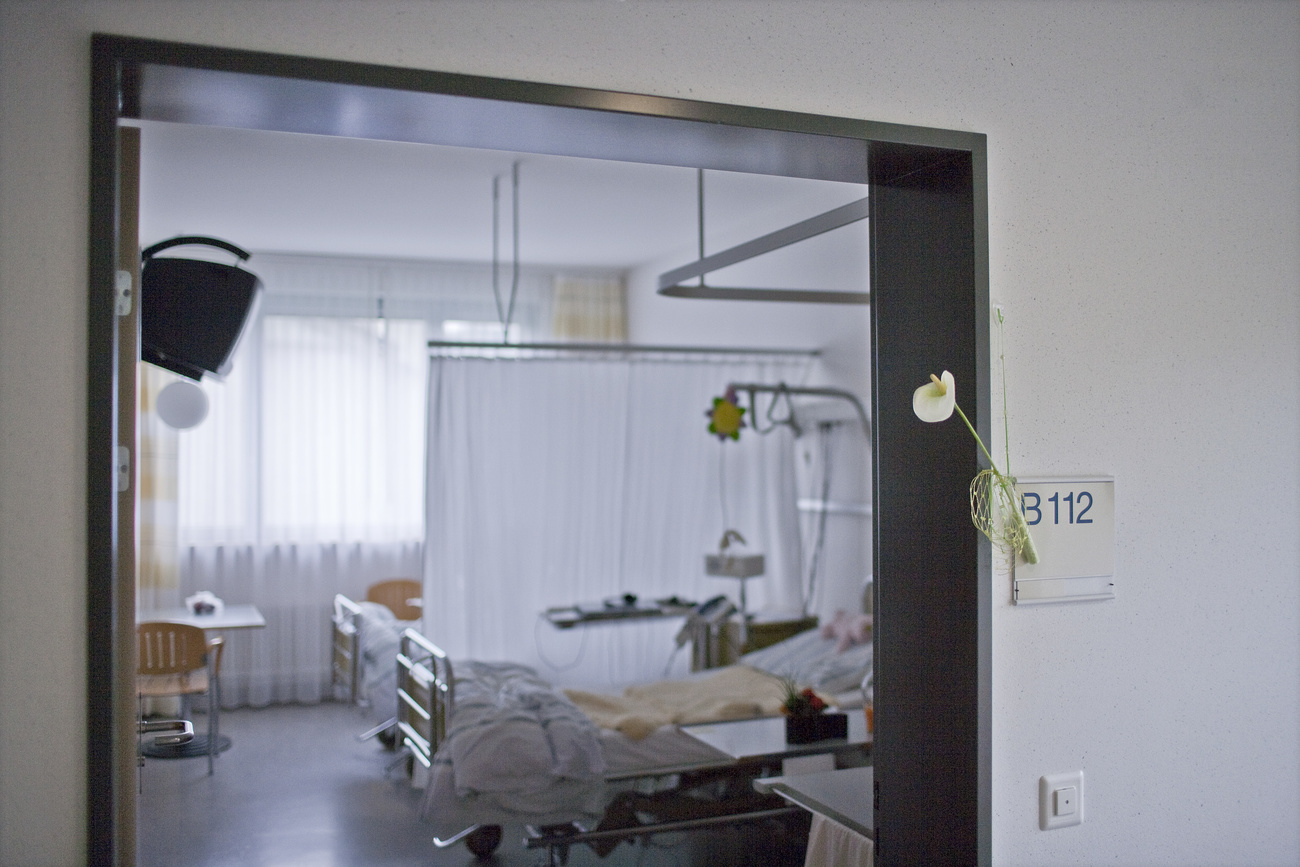
Acceptance for assisted suicide spreads in Europe

Several countries have legalised assisted suicide in Europe in recent years. What is behind this trend?
“I’m going to Switzerland.” This sentence, which is synonymous with the decision to opt for assisted suicide in some countries, may soon become obsolete.
France has taken a significant step toward legalising assisted dying. In April 2024, the French government presented a billExternal link that would allow terminally-ill patients to take lethal medication to end their lives.
In France, the 2016 Craeys-Leonetti law currently offers terminally-ill patients the right to continuous deep sedation until death, but not to take lethal drugs to die. Consequently, some patients travel to other European countries, such as Switzerland, where assisted dying is allowed, in order to seek further options.
>>Franco-Swiss film director Jean-Luc Godard also opted for assisted suicide in Switzerland:

More
Godard’s assisted suicide – not an option everywhere
The first “end-of-life” bill was long awaited in France. In September 2022, President Emmanuel Macron decided to launch a citizens’ convention on the end of life. The convention, made up of 184 randomly selected citizens, concluded in April 2023 that they are in favour of “active assistance in dying.”
France is not the only country moving towards the right to die. In March, the Scottish parliament introduced a bill to legalise assisted dying. If it’s adopted, Scotland will become the first country in the United Kingdom to provide the terminally ill with assistance to end their lives.
That same month in Ireland, one of Europe’s most Catholic nations, parliamentarians recommended that the government allow assisted dying for people with incurable diseases.
A growing wave of acceptance
In Europe, several countries have already legalised assisted dying in the past five years.
Spain has allowed active euthanasia (see box below) since 2021; Austria has allowed assisted suicide since 2022. In Italy, a 2019 decision by the Constitutional Court paved the way for assisted suicide, and in the country’s first case, a 44-year-old man who was paralysed in a car accident died in 2022.
È morto “Mario”, Federico Carboni, 44enne di Senigallia: “La vita è fantastica, ma la sofferenza è troppa. Orgoglioso di aver scritto un pezzo di storia” https://t.co/SICjfPiGNnExternal link
— Associazione Luca Coscioni (@ass_coscioni) June 16, 2022External link
In an assisted suicide, the patient himself or herself takes a lethal dose of a drug prescribed by a physician. Active euthanasia occurs when a medical professional or another person deliberately ends a patient’s life by using lethal substances. This means, for example, that a patient with paralysed limbs who is unable to open an infusion themselves can have their life ended.
In 2023, Portugal joined these countries. Its conservative president, Marcelo Rebelo de Sousa, signed a bill decriminalising active euthanasia and assisted suicide in the Catholic-majority country after parliament overturned his fourth and final veto.
‘We don’t have blind faith anymore’
Right-to-die activists say increasing life expectancy and an aging population have fueled the trend in legalising assisted suicide.
“In the past, most people died fairly quickly in their late sixties or seventies and didn’t have 20 years of chronic illness to deal with,” says Colin Brewer, a member of British grassroots campaign group My Death, My DecisionExternal link. “Now that the average age of death has moved to the early eighties, people live longer but don’t necessarily live happily. This is an enormous change.”
The British psychiatrist also notes that in Spain and Portugal, the presence of radical socialist or leftist governments was a factor.
“People live longer but don’t necessarily live happily. This is an enormous change.”
Colin Brewer, a member of British grassroots campaign group “My Death, My Decision”
Alex Pandolfo, a UK-based right-to-die advocate, says: “Now people are more educated on medical care and individual rights. We don’t have blind faith in medicine anymore. “
“It is unacceptable for many people to live with lots of pain and an extremely reduced quality of life, whilst suffering for many years with untreatable and non-curable degenerative conditions, ” he adds.
Public opinion has also provided a significant boost. A poll in France in 2023 showed that nine out of ten French people (90%) were in favour of the law authorising doctors to allow euthanasia under specific conditions. In Spain, a poll conducted two years before euthanasia was legalised showed that a majority supported assisted suicide.
“We don’t have blind faith in medicine anymore. ”
Alex Pandolfo, a UK-based right-to-die advocate
Even in countries where assisted dying is not yet allowed, public opinion is favourable. In a poll released in March by the British right-to-die group Dignity in Dying, four out of five respondents in Scotland supported assisted dying.
Dignitas, a Swiss assisted suicide organisation, can take some credit for the fact that other countries have legalised assisted dying.
More people choosing assisted dying in Switzerland
In Switzerland, where the first assisted suicide organisation was established in 1982, the number of people choosing assisted suicide continues to rise. According to the Federal Statistical Office, the number of people who have died as a result of assisted suicide has tripled over the past ten years, from 431 in 2011 to 1,594 in 2022.
The number of people registered with assisted-suicide organisations in Switzerland is also at an all-time high (as of the end of 2022).
“Today, progress in palliative care could be leading to the realisation that even very well-conducted care at the end of life does not have a 100% success rate in decreasing suffering sufficiently to set all requests for assisted death aside,” says Samia Hurst-Majno, a Swiss bioethicist and director of the Institute for Ethics, History, Humanities (IEH2) at the University of Geneva.
>> Is Switzerland a good place for the terminally ill?

More
Palliative care: is Switzerland a good place for the terminally ill?
She points out that “the aging population and changes in generational outlooks toward death could also be factors.”
Will this trend continue?
Will the legalisation of assisted dying continue to spread in Europe?
Hurst-Majno says that it is difficult to predict, but adds that it’s “entirely possible since the generation that is currently reaching old age has generally placed more value on individual rights than previous generations.”
Brewer says that while this trend could spread beyond Western nations to the developing world, he expects that it “would reach a plateau at some point.”
“Most people who request assisted dying are well-educated, have had a good life, and are prepared to think about death,” he says. “But that is only a smallish number of people in a society. Most people don’t like to think about death.”
In Arab and Asian countries, assisted dying remains a taboo subject due to religious and cultural factors. But some doctors commit illegal acts to fulfil the wishes of their patients. In Japan, a doctor was recently sentenced to 18 years in prisonExternal link over the deaths of two people, including the killing of an amyotrophic lateral sclerosis (ALS) patient who had asked him to end her life, which rekindled the debate over the right to die in the country.
More
Edited by Marc Leutenegger

In compliance with the JTI standards
More: SWI swissinfo.ch certified by the Journalism Trust Initiative



























You can find an overview of ongoing debates with our journalists here . Please join us!
If you want to start a conversation about a topic raised in this article or want to report factual errors, email us at english@swissinfo.ch.